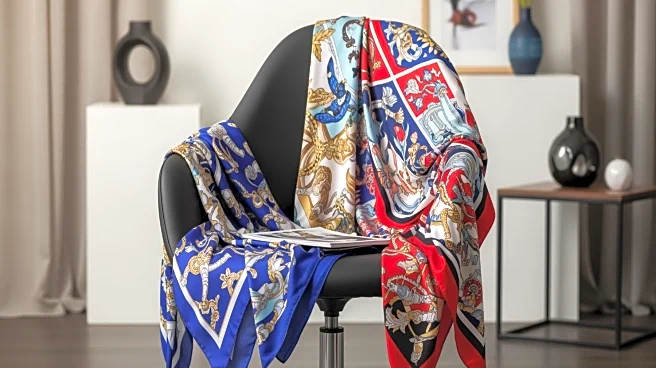What's Happening?
Former First Lady Michelle Obama has opened up about the intense public scrutiny she faced during her time in the White House, particularly as a Black woman. In her new book, 'The Look,' Obama discusses
how she used fashion as a form of 'soft power' to convey messages about her background and culture. She expressed that as the first Black couple in the White House, she and her husband, former President Barack Obama, were acutely aware of the potential for missteps and the racial dynamics at play. Obama noted that they did not receive the same grace as other first families, and she felt a particular pressure regarding her fashion choices. She emphasized the importance of being known for her work rather than her appearance, but now feels more comfortable discussing her wardrobe choices. Her book, co-authored with her stylist, includes photos and explanations of her fashion decisions during her time in the political spotlight.
Why It's Important?
Michelle Obama's reflections highlight the intersection of race, gender, and public perception in American politics. Her experiences underscore the unique challenges faced by women, particularly women of color, in high-profile positions. The scrutiny over her fashion choices reveals broader societal tendencies to judge women based on appearance, which can overshadow their professional achievements. Obama's candid discussion may inspire conversations about the pressures faced by women in leadership roles and the importance of representation and inclusivity. Her insights could influence public discourse on how women in politics are perceived and the expectations placed upon them.
What's Next?
Michelle Obama's book release may spark further discussions about the role of fashion in political messaging and the pressures faced by women in public life. As she continues to share her experiences, there may be increased dialogue around the challenges of navigating public perception and the impact of race and gender in political environments. Her reflections could lead to broader conversations about the need for grace and understanding for those breaking new ground in political and social spheres.
Beyond the Headlines
Obama's experiences highlight the cultural and ethical dimensions of public scrutiny, particularly for women of color in leadership roles. Her narrative may contribute to ongoing discussions about the importance of diversity and representation in politics and the media. The book could serve as a catalyst for examining how societal norms and expectations shape the experiences of women in power, potentially influencing future generations of leaders.








